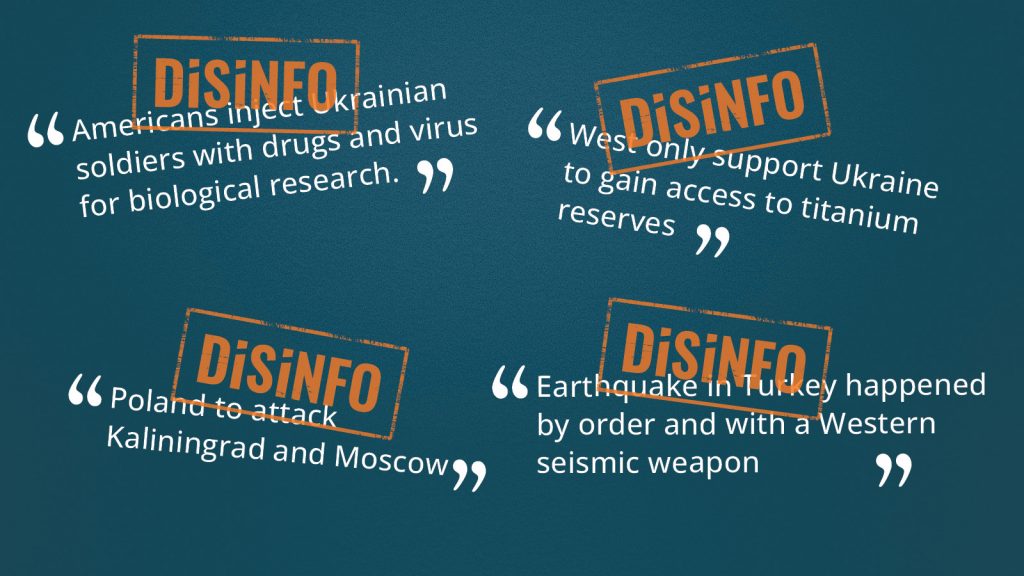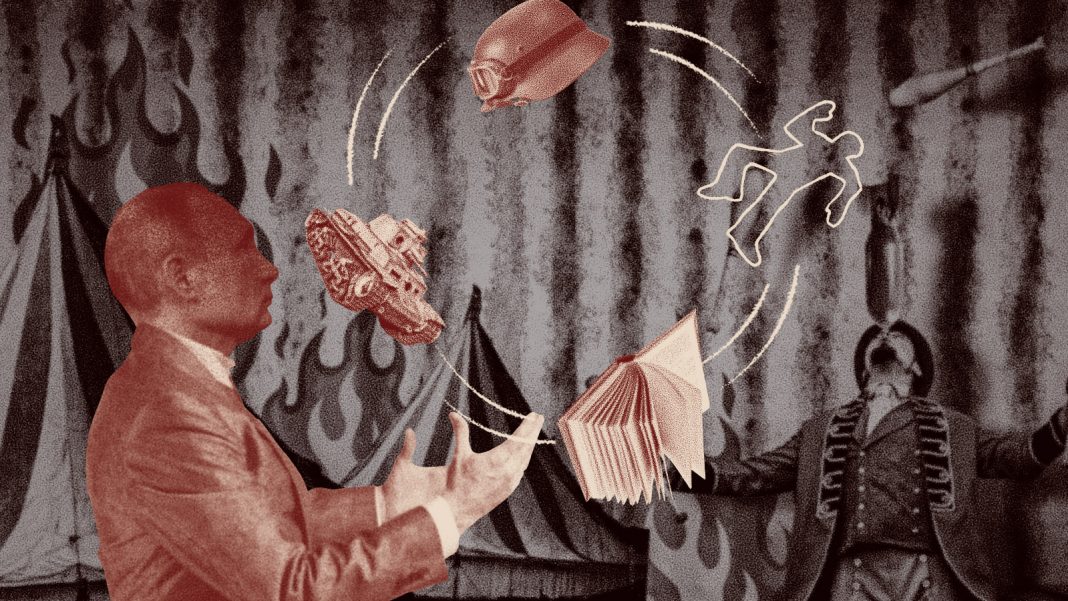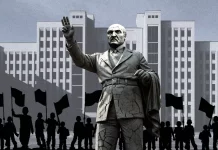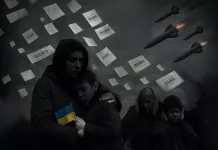History in Russia is a minefield. A popular saying in the Soviet Union went like this: ‘We know what the future will bring. It’s much more difficult to predict what the past will look like.’
Telling the truth about what happened in Mariupol or Bucha last year can land you several years in jail. Ilya Yasin was sentenced 8.5 years for telling the truth about atrocities committed by Russian forces in Bucha during the spring of 2022. Alexander Nevzorov (in absentia) received an eight-year sentence for repeating what most of the world recognises: Russian forces bombed a maternity hospital in Mariupol in March 2022.
Europe was Nazi in Stalingrad – welcome to the new 1940s
Recent weeks saw several remarkable events that purported to change our understanding of history. We believed, for example, that the Soviet Union and the Western Allies fought together from 1941 to defeat Hitler.
Now Putin is telling the world we got it wrong. During commemorations of the Siege of Leningrad on 18 January and the Battle of Stalingrad on 2 February, Putin said that we must now understand that actually ‘many European countries took part in the Siege of Leningrad’ and ‘practically all countries of subjugated Europe fought at Stalingrad’. ‘Today, again German [Western] tanks are on the way to fight Russians’.
All of Europe was already Nazi back then. No wonder they are still Nazi today – as they support Kyiv, which is Nazi by definition. Calling people Nazis has been a centrepiece of Russian manipulation. Don’t be surprised if the Allies’ Western European war almost disappears from Russian history. Perhaps praise of crucial Western help by Stalin, Khrushchev, and Marshal Zhukov will also fade into oblivion. In Russian schools, the curricula for history and social studies are centrally controlled and often trimmed to fit contemporary political priorities. See also here.
Welcome to the 1960s and the anti-colonial Soviet Union
On 7 February, EU High Representative Josep Borrell called out the Kremlin for its international campaigns to manipulate and undermine democracies, documented in our latest reports here. Moscow’s global investment in and weaponisation of disinformation and manipulation works at an industrial scale, all with the aim to mislead and destabilise where possible.
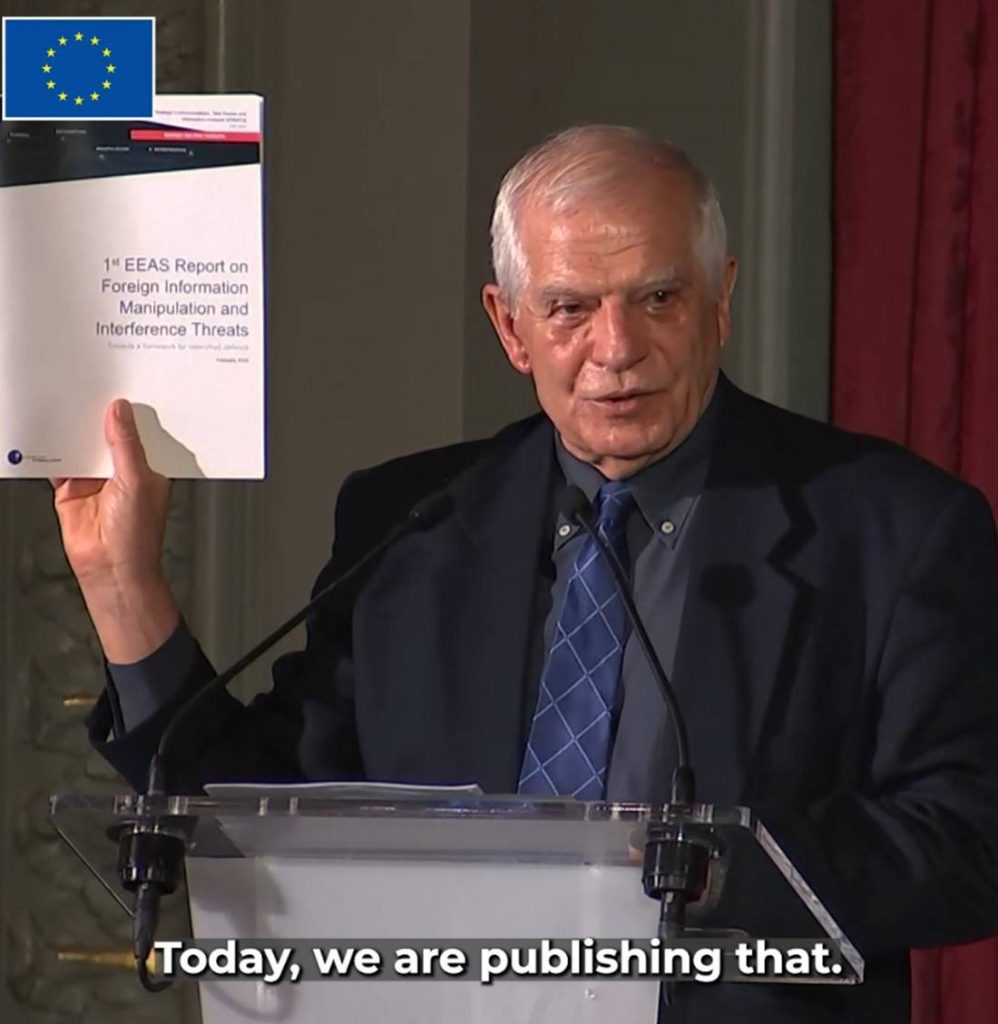
We must have hit a nerve since Moscow launched a plethora of reactions and comments within hours of Borrell’s speech (examples here, here, here). It spread virulently across large sways of the pro-Kremlin ecosystem including the main state outlets: TASS; the government’s Gazeta platform; RT, which ensures a further spread in all the Russia Today and Sputnik languages; etc. The Russian diplomatic network of embassies also mobilised its Twitter accounts.
From his second Africa trip, Foreign Minister Sergey Lavrov launched himself into angry reactions that quickly made their way onto the main Russian TV channels. He alleged that Borrell, and by extension the EU, is racist (apart from Nazi) and that Russia is carrying the torch from the Soviet Union by promoting de-colonisation, just like in the 1960s.
Wait a minute: colonies? Who wants to dominate its neighbours and always demands ‘spheres of influence’?
Every week we register new evidence of Russia’s disinformation and information manipulation. Some operations are launched and spread quickly, especially those with a strong impulse from the centre. Others require more time for growth but can be equally massive in their final spread. This week’s examples provide insights into the anatomy of the Kremlin system and its sensitivities.
Tanks, tanks, tanks
Western tanks featured centrally this week. The largest Russian print outlet, the tabloid Moskovskiy Komsomolets, trumpeted that Poland plans to recruit Polish volunteers for Leopard tanks. In fact, the story made use of photoshopped and fabricated images. No such plan exists.
RT’s German-language subsidiary Ruptly manipulated footage from a rally held in Nuremberg on 31 January on anti-COVID-19 restrictions and portrayed the demonstration as a popular protest against the German decision to send tanks to Ukraine. The Russian Ministry of Foreign Affairs, @mfa_russia, retweeted the false story. It also spread into RT English and Russian, the News Front French website, the main state wire service RIA, the Belarus state wire service Belta, and several other platforms.
The problem, of course, was that the demonstration in Nuremberg had nothing to do with the tanks. The highly manipulative, in fact outright lying, resembles what we documented in our article about setting fire to emotions with lies.
All this dovetailed with other state TV news during the week that featured reports about ‘Western tanks fighting Russians’. The narrative virtually dominated coverage for the Russian-speaking world and beyond. See an example here.
The EU/Ukraine summit, Nazis, and tanks – shaping the information space
Pro-Kremlin outlets targeted the EU/Ukraine summit, held on 3 February in Kyiv, and especially Commission President Ursula von der Leyen with harsh verbal attacks. Former President Medvedev, now Russian Security Council Deputy chair and responsible for the illegally annexed regions in Ukraine, again led the pack with the most toxic calls for the nuclear eradication of Ukraine or the destruction of the country in two years (see here).
Medvedev follows Putin in shaping the information space, manipulating the public discussion by outlawing everything from the West as ‘Nazi’. He labelled Presidents Zelenskyy and Ursula von der Leyen as ‘patient and doctor at a narcological ward’ while also comparing Europe to ‘the Nazi Doctor Josef Mengele now with a plan to kill Ukraine’. In addition, the Ukrainian economy allegedly will ‘collapse due to its Nazi drug-addicted government in Kyiv’. Medvedev’s rant quickly triggered over a half-million views and then inspired a flood of similar content on other pro-Kremlin platforms.
Putin’s war of choice – Russia’s full-scale, unprovoked attack on Ukraine – is now storified every day across all platforms as a holy, heroic existential defence of Russia that is no less significant than the “Great Patriotic War of 1941-1945”.
